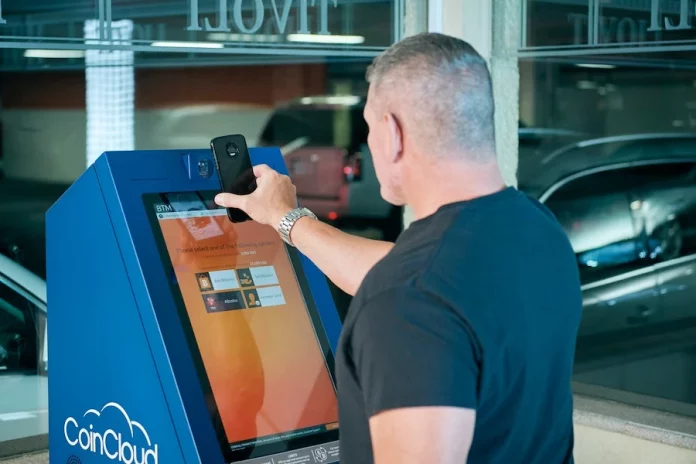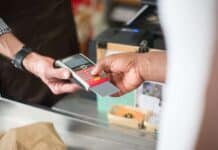Digital banking has revolutionized the way people manage their money. With just a few clicks, you can deposit checks and transfer funds from anywhere anytime – no more trips to the bank! Over three-quarters of US citizens prefer this convenient approach; however, transaction security remains an issue. Here are nine essential steps to ensure your financial information stays secure online or through mobile technology.
#1 Enable Two-Factor Authentication
Is your as secure as it could be? Protecting sensitive information with two-factor authentication can help keep your security tight. This verification process works by requiring multiple levels of identification, such as entering a special code or verifying via biometric confirmation, to log in successfully. Simply speak with an expert from your bank or credit union to find out how you can enable this additional layer for added peace of mind that confidential data won’t land in the wrong hands!
#2 Avoid Public Wi-Fi Networks
For many of us, public Wi-Fi networks are an indispensable source for staying connected on the go. But according to NortonLifeLock Inc., we must also stay vigilant against some huge security risks associated with them like man-in-the-middle attacks that can eavesdrop into your banking and other online activities, or unencrypted data transmissions vulnerable to malicious hotspots containing malware and spyware. To maximize your bank data security when using public Wi-Fi for sensitive operations such as mobile/online banking – you should disable any file-sharing capability in addition to only sticking with secure sites verified by robust encryption measures!
There is another way – not to completely abandon public WiFi networks, but instead, use crypto VPN for all financial transactions. This is not only a bitcoin VPN, but also a VPN for banking. One of the main advantages of the VeePN service is data encryption during its transfer to the server and back. Even if the data is intercepted by attackers, they will not be able to break the 256-bit encryption, and without it, they will just have a set of characters in front of them.
#3 Be Aware of Fake Emails
With the advancement of modern technology, cybercriminals are keen to exploit any opportunity they can find. Scams such as phishing emails and calls have become commonplace; however, a recent twist on this age-old ploy involves using social media channels like WhatsApp or Facebook for deception. By luring unsuspecting victims with tempting offers or ads that redirect them to fake websites asking for their banking information – individuals may unwittingly hand over sensitive data in an instant! Unfortunately, many only realize this after it is too late…
#4 Activate Banking Alerts
Stay informed and stay safe with banking alerts! Get notified quickly when something happens to your account – whether it’s a low balance, new transactions, or if any login attempts fail. You can even receive updates on changes to the personal information associated with the account; this way you’ll be aware of potential fraud before it escalates. Not feeling secure? Change those passwords as soon as possible – then reach out to your bank for extra peace of mind.
#5 Look for Trustworthy Financial Apps
With the world switching to digital banking, financial apps have made it easier than ever before to manage your money on the go. But with convenience comes security risks; not all apps are created equal in terms of safety and protection. Be sure that you’re downloading an official bank app directly from its website – or verify reviews if opting for a download via App Store or Google Play. You may also be tempted by budgeting applications, but remember: giving them access to your login credentials is putting both your data and funds at risk! Do some research beforehand about any potential downloads so you can stay safe while staying savvy with finances.
#6 Use a VPN
With the rise of cyber threats, reliable security is a must for carrying out any financial transaction online! A VPN ensures that your private information and banking credentials remain safe by encrypting web traffic. Thus, all data sent or received via its secure servers are completely invisible to potential intruders – no prying eyes can access it! However, this is provided that the selected service provider uses strong encryption. To do this, it is worth studying it comprehensively, paying special attention to reviews. Use this hyperlink to see VeePN reviews. Ensure peace of mind with an extra layer of cybersecurity when transacting in cyberspace.
#7 Do Not Store Payment Information on the Device
Despite its advantages, online banking can leave your finances vulnerable to criminal activity – not only from cyber criminals on the internet but also from physical intruders who could gain access to your device and use it as a jackpot of personal information. While convenience is understandable when saving usernames and passwords in an electronic environment, such negligence may mean that someone else has easy access to all they need for financial fraud.
#8 Create Strong Passwords
We all know how convenient it is to use a simple password — one we can easily recall without breaking out the sticky notes. But did you realize that this makes your accounts more vulnerable? Strengthen up with an intricate pattern of numbers, letters, and other characters which require no logic or meaning; two-factor authentication also works wonders for added security! Banks are now using fingerprints as well – so don’t be afraid to make sure your information stays safe and sound.
#9 Update Financial Apps Regularly
Be sure to keep your apps, websites, and operating systems secure by regularly updating them. These updates are essential in protecting your information from cybercriminals; they include patches that fix weaknesses within the software so it can stay safe. Instead of manually checking for new versions, why not automate this process? By allowing applications to update automatically you’ll always be one step ahead – keeping both yourself and sensitive data protected at all times!
Conclusion
Online banking is here to stay and it’s important to protect your information when using these services. Take the time to think about how you can make sure that no one else can access your data or use it without your knowledge. Follow the steps outlined above and reap the benefits of worry-free online banking!












